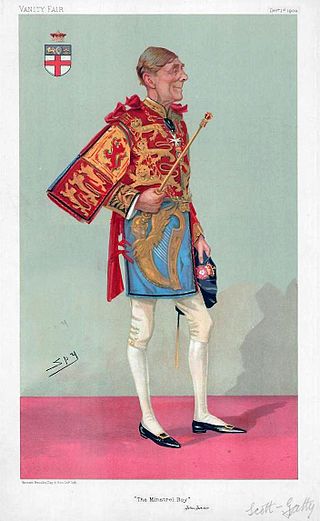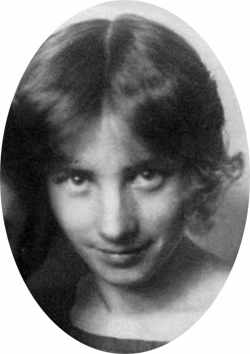Related Research Articles

Agnes Elisabeth Lutyens, CBE was an English composer.

Dame Elizabeth Violet Maconchy LeFanu was an Irish-English composer. She is considered to be one of the finest composers Great Britain and Ireland have produced.
Nicola Frances LeFanu is a British composer, academic, lecturer and director.

Sir Alfred Scott Scott-Gatty was a long serving officer of arms at the College of Arms in London and a successful composer.

Friedemann Kupsa is an Austrian Cellist.
Marion Margaret Scott was an English violinist, musicologist, writer, music critic, editor, composer, and poet.

Liza Lehmann was an English soprano and composer, known for her vocal compositions.
Katherine Emily Eggar was an English pianist and composer. Eggar was born and died in London, England, the daughter of Thomas Eggar and Katherine MacDonald. Eggar was active member of the feminist movement especially in terms of opportunities for women in music. At the inaugural meeting of the Society of Women Musicians, Eggar stated, "The conventions of music must be challenged. Women are already challenging conventions in all kinds of ways… We believe in a great future for women composers."

Ethel Barns was an English violinist, pianist and composer. She was born in London and entered the Royal Academy of Music at as a teenager, where she studied with Emile Sauret for violin, Ebenezer Prout for composition and Frederick Westlake for piano.

Ina Boyle was an Irish composer. Her compositions encompass a broad spectrum of genres and include choral, chamber and orchestral works as well as opera, ballet and vocal music. While a number of her works, including The Magic Harp (1919), Colin Clout (1921), Gaelic Hymns (1923–24), Glencree (1924-27) and Wildgeese (1942), received acknowledgement and first performances, the majority of her compositions remained unpublished and unperformed during her lifetime.
Anne Macnaghten, CBE was a British classical violinist and pedagogue.

Sophie Adele Wyss was a Swiss soprano who made her career as a concert singer and broadcaster in the UK. She was noted for her performances of French works, many of them new to Britain, for giving the world premieres of Benjamin Britten's orchestral song cycles Our Hunting Fathers (1936) and Les Illuminations (1940), and for encouraging other composers to set English and French texts. Among those who wrote for her were Lennox Berkeley, Arnold Cooke, Roberto Gerhard, Elizabeth Maconchy, Peter Racine Fricker, Alan Rawsthorne and Mátyás Seiber.
Adolph Hallis was a South African pianist, composer and teacher.
Notable American Women, 1607–1950: A Biographical Dictionary is a three-volume biographical dictionary published in 1971. Its origins lay in 1957 when Radcliffe College librarians, archivists, and professors began researching the need for a version of the Dictionary of American Biography dedicated solely to women.
This is a summary of 1911 in music in the United Kingdom.
This is a summary of 1906 in music in the United Kingdom.
Alma Haas was a German pianist, musicologist, and teacher. She was a founding member and third president of the Society of Women Musicians.
Ethel Edith Bilsland was an English composer, soprano and pianist.
Eva Kathleen Merritt was a British conductor who led her own orchestra from the 1920s into the 1970s. She was best known as a pioneering woman conductor, and for her local music-making in Petersfield, Hampshire.
The English Ladies Orchestral Society was one of the first and largest amateur ladies’ orchestra in the UK, founded in 1893. It had over 100 members, including a full band of wind and strings. The primary organisers were Mary Venables and Marian Arkwright. The conductor was Mr. J. S. Liddle, organist of St Nicholas' Parish Church in Newbury and also the conductor of the Newbury Choral Society from 1884 until his death in 1921. Liddle first organised a series of concerts featuring orchestras for female players in 1877.
References
- Sophie Fuller. "Society of Women Musicians", Grove Music Online , ed. L. Macy (accessed March 12, 2007), grovemusic.com Archived 2008-05-16 at the Wayback Machine (subscription access).
- Musicweb international on Marion Scott and the Society